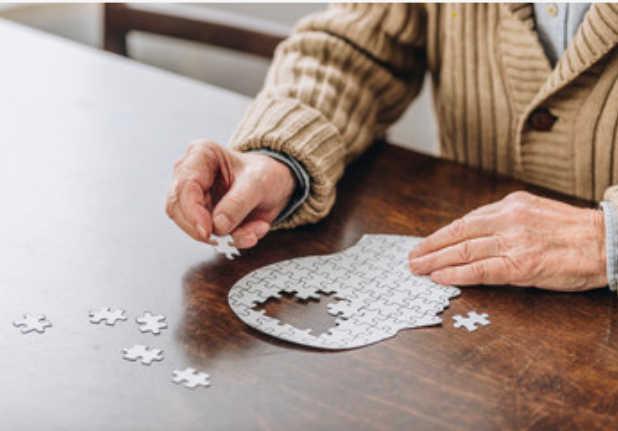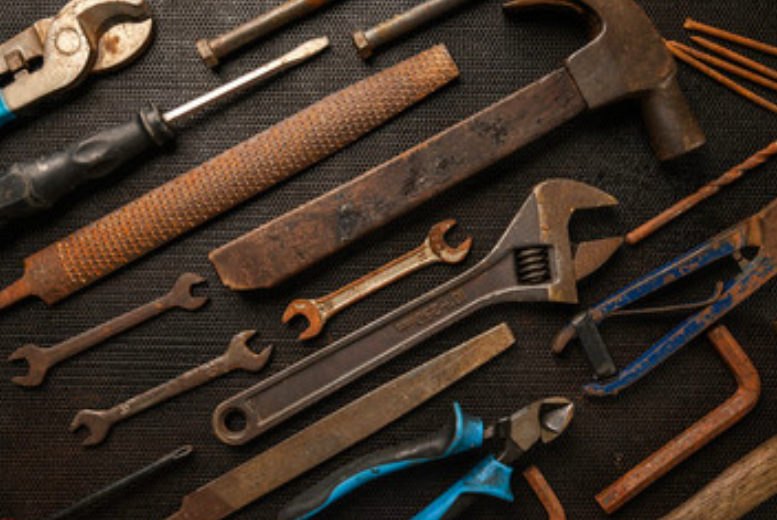|
Elderly grow just as many brain cells as youths:
http://www.cell.com/cell-ste…/fulltext/S1934-5909(18)30121-8 You’ve probably heard the factoid that only children grow new brain cells. It was never true, nor could it be true. In fact, as we age, there are increased neural network connections which allow certain skills to be acquired faster and certain problem-solving to be done more acutely. This is a well-known phenomenon in the arts, business, and military strategy, which has been increasingly bolstered by scientific findings in the past fifteen years. We must differentiate what can be possible from what happens on average. The average people make no effort to preserve health, to learn new skills, to dramatically grow as they became elderly. Thus, on average, what we will observe when studying average people is that on average the brain will worsen. This can become confusing for even very intelligent experts in the field. They make a logical fallacy that average outcomes represent what MUST happen. I've encountered this with some clinicians and their beliefs around diabetes. Since the average person is a lost cause, they reason that diabetes is irreversible. This isn't based on any biological fact or reality. It isn't based on a set of biochemical laws or rules. It is purely based on the observation that basic average people have basic average outcomes. When we reference mechanism, namely cell turnover and receptor upregulation, the grey-scale that is insulin resistance/glucose intolerance-insulin sensitivity/glucose tolerance, what we find is that "diabetes" is an arbitrary point on an ever-shifting gradient. Not only is it entirely reversible, one can reverse the reversal. This is a function of lowest-common-denominator thinking and behavior. Over forty years ago, based on biology, we knew lifestyle was the cure for diabetes. Now, overwhelming case studies have proven it conclusively. Keep in mind that those irrefutable truths haven't changed the minds of average people thinking about average outcomes based on average effort. Likewise in neuroscience, there is no biological reason why new brain cell growth would cease. Most researchers have confirmed this, although we do see that age-related afflictions will inhibit brain cell growth: https://www.nature.com/articles/s41591-019-0375-9. This is contended by no one really. Rates change. Different health issues affect it. Averages are bleak. None of that tells us what is possible or impossible. And it doesn't take a lot of effort to discover stories about elderly people who learn new languages, new skills, new athletic abilities, new careers, new adaptations to technology. If, however, we insist on limiting beliefs, if we insist that average is what MUST be, then we have done nothing more than create self-fulfilling prophecies. We begin with the expectation that our brain must fall apart. Lo and behold, we stop challenging it to grow. We coach ourselves down to our starting expectation. That's at odds with numerous case studies. That's at odds with neuroscience. That's at odds with biology. The older brain can keep growing, as long as we seek to be more than basic and average.
0 Comments
Most people would just as soon pass by this Biblical quote (Matthew 26:16) and never even notice it. Those who pause a little longer may see it as prophetic. But I’d argue it’s a timeless commentary on all of life. Any subject in which people think “first is best” has downside. And any area in which people think “last is worst” has upside. After all, the first leaf to sprout is often the first leaf to fall.
I never thought I’d be proud to be from a state which ranks dead last in the Union, but in April of 2020 Minnesota ranked below every single state and even our other territories (DC, Guam, Virgin Islands, maybe Puerto Rico when they complete enough tests) in Covid infections per million person populace: https://www.worldometers.info/coronavirus/country/us/. Though things have changed in the past few months, the pandemic has remained remarkably better managed here than most other places. With an international airport smack dab in the middle of our most densely populated area, it’s a wonder actually. BUT, I was concerned in April that being the best could actually lead to getting complacent. In fact, we all know it well in the rest of life. When people “arrive,” they don’t tend to improve. Being the best can actually be the worst. And on the flip side, being the worst can actually ignite a hunger in people. We’re all familiar with underdog stories. But why do they stir something in our souls? I believe it’s because we know intuitively that people with nothing left to lose command a sort of superpower if they choose it. People who’ve actually hit rock bottom and risen up know that having nothing left to lose can turn you into a superhuman. Think about people who have the most to lose. They live in constant fear of losing it all. Societally, we tend to look up at incredibly wealthy people; but many of them just sort of flounder. Multi-generational rich families have one single good story (or none) about the first person who established the family’s riches. And then all of the kids and grandkids live in that shadow, never taking substantive risks, and failing to achieve significance of their own making. In fitness too, I’ve had a propensity to feel jealous of people who’ve been “fit” their whole lives. Lamenting my late-in-life commitment to consistent lifting, I’ve many times felt at a distinct disadvantage. But the other way to look at it is that I never got to take my health and fitness for granted. I had to earn each step with no running start. To wit, when I began working in the fitness industry, the worst-off new members were former high level high school and collegiate athletes. At 50-years-old, all of these guys who’d been blithely fit were on 8 different medications. And without a team, peer pressure, and consistent scrimmages and games, they were lost. But on the other hand, people who’d “always struggled with weight” could soar with their goals. They never had a team. They never succumbed to external pressures for athleticism. They never developed a dependency on matches to keep them active. These are some of the absolute best success stories out there. They don’t have a past they’re trying to get back to. On average, they are better at accepting the present. Life is more complex than we want to think. Advantages have disadvantages. Privilege has downsides. Being the best can easily be the worst. And being the worst can teach you how to become the best. “I am the wisest man alive, for I know one thing, and that is that I know nothing.” - Socrates (attributed)
“Pride comes before destruction, and an arrogant spirit before a fall.” - Proverbs 16:18 “Everyone has a plan until they get punched in the mouth.” - Mike Tyson Reality is uncertain. Life is uncertain. It always was and always will be. So why do people yearn to have the delusion of certainty? I never understood what was so wrong with being uncertain in the first place. The greatest moments in history come from uncertainty. The ugliest ones come from certainty. People who cling to certainty destroy themselves and others. Just be adaptable. You don’t need to pretend like you have it figured out. You don’t have it figured out. And that’s okay. That’s actually preferable. When we don’t know and we admit that we don’t know, isn’t that the only time we actually can learn? Wisdom is understanding and acknowledging that you don’t know, that you’re okay and secure in the uncertainty, and that you have the patience to wade through unclear times without pretending to have the answer. Some 12 years ago, Stephen Colbert did a brilliant satire on how people will “know” a “truth” by looking it up in their gut: https://youtu.be/OBRKPoAPXEQ . We can see this every day. People are increasingly convinced of a “fact” without reading a single book, without interviewing a single expert, without conducting a single experiment. They just “know the truth” in their guts; and then maybe they add some “research” to back up their guts, by reading Internet forum posts on hoax websites and YouTube channels. It’s a curious coping mechanism for stress: latching onto make-believe certainty in order to avoid actually learning from a time of uncertainty. Uncertainty is the only place where one can discover. How are you going to learn if you already know the answer? Study the scientists who worked to uncover the electromagnetic spectrum: https://imagine.gsfc.nasa.gov/science/toolbox/history_multiwavelength1.html . Not one of them pretended to know about the totality of the electromagnetic spectrum EVEN AFTER STUDYING IT INTENSELY FOR YEARS. Yet you know the underpinnings of the entire global economies and political structures from a meme and a 10 minute conspiracy theory video? Ok. Real researchers attain real breakthroughs by toiling for an entire life time in their blind spots, by confronting the unknown for decades, so that we might arrive at the current state of affairs with phones and computers and x-rays and MRIs and ultrasounds and sonar and lasers and barcodes. The list is endless. We take it for granted. Our lives are measurably better in many ways due to exploration in the uncertainty. They didn’t “figure it all out”, and certainly not in a few minutes of paranoid incoherent meanderings. In health and fitness, I encounter this constantly. People want answers. Final answers. Certainty. They want a diagnosis, a prescription, and a guarantee. Those people flounder. They fail. They just want the answer. But there is no answer. Success is found in the struggle, in the battle, in wrestling with what “doesn’t make sense.” The truth is found is trudging through what’s difficult. You don’t sweat, bleed, claw, and pay for it? You don’t deserve it. No one cares that you “used to eat whatever I wanted and never got fat.” That’s not how things ARE. The past passed. Will you adapt to reality or will you cling to make-believe? If you are in love with uncertainty, you are unbreakable. Every time the ground shifts, you’re underwhelmed. Every time there’s a zig where others expect a zag, you’re unflappable. Every time the landscape moves, you’re unimpressed. Fall in love with uncertainty, because there is where we become strongest. Be unsure. Be uncertain. Be ready to learn from one mess so that you are prepared for the next. The journey of life is like sidewalk demolition. Some people start out with a jackhammer. Some people have a crew. Most of us are all alone with a rusty chisel and a worn out mallet.
But if we're determined to get through this thing, we better make do with what's available. It's not our fault that this is all we have. But it's still our responsibility to use these few tools for the task at hand. Everyone is going to get dirty. Everyone's going to breath in some dust. Some are going to get hurt. Some will take more breaks than others. All will die in the process. Coveting some other set of tools is only going to slow you down. The temptation from frustration will be there to use the chisel for harming others. Every time you put your eyes on someone else's work, you risk crushing your own hand with the mallet. Just focus on working your own sidewalk with your own tools, because that's all anyone can do. This is what you have. Use it. |
Elev8 Wellness
|
LIVE. AWESOME.We offer the highest quality in personal fitness, nutrition, and mindset coaching, helping you achieve your fitness, health, wellness and performance goals no matter the obstacle. With virtual online training and private, in-studio training we make it easier to reach your wellness goals safely.
No more can't. No more not good enough. If you compete in a sport, let your mind no longer hold you back from being the greatest. If you don't, let your mind no longer hold you back from being the best version of you that you can be. Sign-up for a Tour Covid Screen Waiver Elev8 Waiver Become an Elev8 Instructor Space Rental |
6244 lyndale ave. s., minneapolis, mn 55423
|
© 2021 Elev8 Wellness LLC. All Rights Reserved. site map | contribute | SITE BY Sproute Creative





 RSS Feed
RSS Feed
